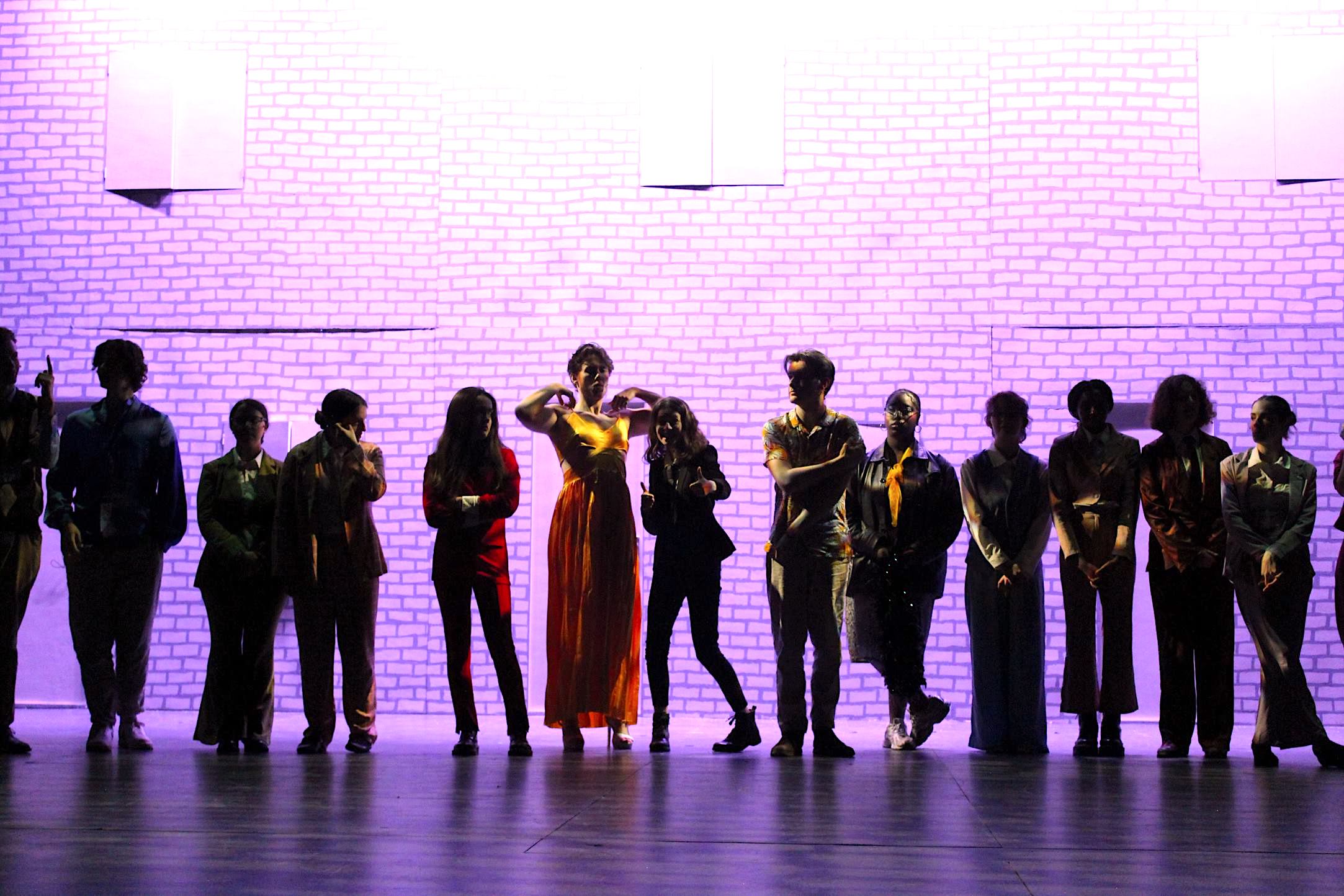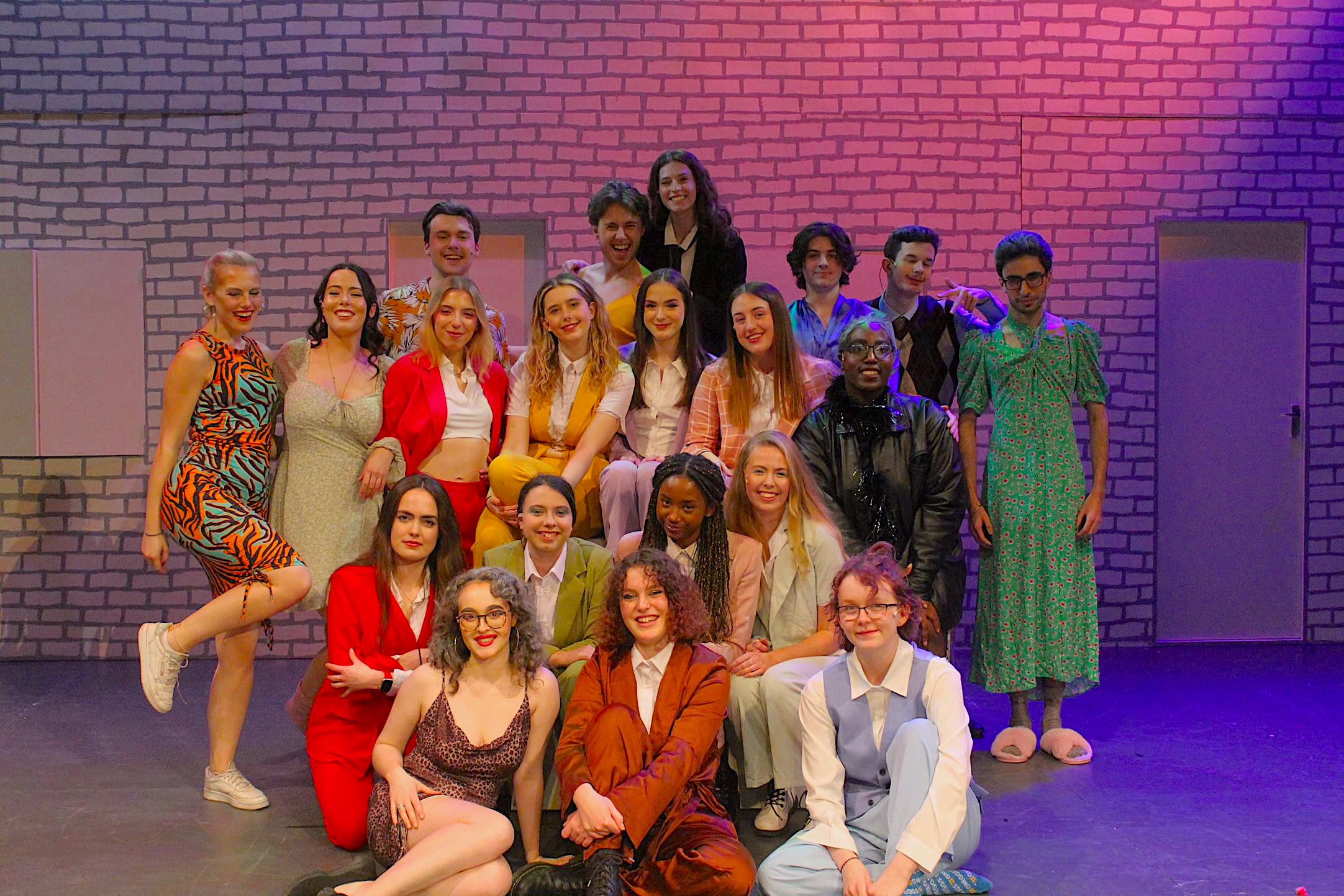At the end of last year, I wrote a post for The Rostra about the Warwick Classics Play and the creative processes involved in staging an ancient drama. We’ve now finished our run at the Warwick Arts Centre and I would like to share some details about the experience, what we learnt as it developed, and how it was ultimately received by our audiences.
This year, we performed Assemblywomen by Aristophanes, a comedy portraying the women of Athens taking over the assembly. It was a wonderful and vibrant experience for everyone involved, and I am sure we’d all agree that it is was (and always is) a highlight of the year for our classics society and university department. It was, of course, a huge undertaking, and called for incredible dedication and creativity from everyone involved.
We set out to present ancient theatre to a young and modern audience, and there were definitely some nerves about how the schools’ performance (a matinee during the Ancient Drama Festival reserved for school groups) would be received. It is often the case that ancient theatre can seem intimidating, complex, and perhaps elitist. However, I am pleased to say that the response we have had from the students has been overwhelmingly positive!
Lots of audience members commented on our modern take on the ancient political jokes, which we hoped still retained the spirit of the original text. Our adaptation allowed the audience to consider the play in new ways that,
"meant it felt more relatable than when studying it"
and helped them understand
"the role played by comedy, the way it can poke fun at the tensions and stigmas in the current world – without offence!"
This was great to hear – especially as we discovered quite early on that writing jokes is a challenge.
Our brilliant director Hana Lawrie and producer Seb Handley not only re-wrote all of Aristophanes’ references to contemporary Athens to make them more understandable and relatable to our audience, but also encouraged the development of these jokes with the cast during rehearsal. Some of our favourite moments came from improvised exchanges between the actors. Everyone came to each rehearsal with their own ideas and interpretations, adding layers and details we hadn’t originally intended to include. It was a truly collaborative process, and a privilege to watch the comedy unfurl as the rehearsals went on.
This was made even more exciting by the fact that we had students from outside of classics involved with the play. Students from departments including English literature, liberal arts, drama, and history, all brought their own perspectives to the piece, which kept the production fresh and dynamic. As a team, we not only updated the jokes but reworked the understanding of gender within the play, taking a mocking plot (a comic fantasy about women in charge of government) and turning it into a story about female empowerment.
This experience has been enjoyable, sociable, and fun! Classics, like any academic subject, can feel dry: it can be easy to forget that this play was created to make people laugh. Putting on ancient theatre is an invaluable way to learn and engage with the material, both for the university cast and crew and for the students who came to see us.
I said in my post in December that drama is about "communicating with an audience – thereby bringing people together" and I am so proud to say that we have achieved just that.
Everyone involved in Assemblywomen became closer through this process and we have had so much fun together. I can’t wait to see what next year’s classics play will bring!
Isabella Vaughan is a second-year classical civilisation student at the University of Warwick and the stage manager for the production of Assemblywomen. Did you catch this student-led production? Tweet your thoughts @IsabellaSJV.
The Warwick Ancient Drama Festival runs every year. You can find videos and information related to previous performances by visiting their website and YouTube page.


